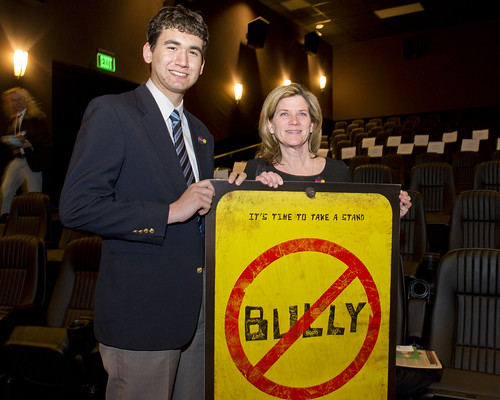Have we created a cultural anti-bullying campaign?
After a rash of bullying-related suicides, Dan Savage started the famous “It Gets Better” campaign, a YouTube centered anti-bullying campaign that aims to tell LGBT youth that whatever prejudice and bullying they may be facing now, it actually gets better. Way better. Even President Obama joined thousands of people around the globe in making a video.
The popular children’s television channel, Cartoon Network, joined the anti-bullying movement in the fall of 2011. At first, they ran commercials showcasing bullying and urging kids to “say something when they see something.” Later, they increased the number of commercials and aired a special aimed at children that was made to stimulate discussion in families and schools.
Popular literature, music and books are part of the movement.
Novelists had already been writing about bullying, both fictional and based off of their own experiences. In 2012, a Sticks and Stones list was created, which gave interested readers a one-stop-shop for anti-bullying literature.
These books joined classics like To Kill A Mockingbird and Of Mice and Men, and encouraged a national conversation about what it means to be ostracized and excluded from a community, feelings that rang true to anyone who had ever experienced bullying themselves.
Many schools created their own anti-bullying campaigns. The Power of 100, a group of students and staff at Swartz Creek High School in Michigan, encourages students themselves to be intolerant of bullying, instead of relying on the administration to solve problems.
Celebrities brought the anti-bullying campaign into the public and media eye. Lady Gaga, Bill Clinton and Ellen Degeneres all spoke about their own experiences with bullying, explaining how it affected them and that they still managed to succeed and be happy.
A hit song, Don’t Stop (Color on the Walls), by Foster the People, took radio waves by storm. The song is entirely about bullying.
Together, these cultural forces made their message clear: bullying is not okay, not one bit.

